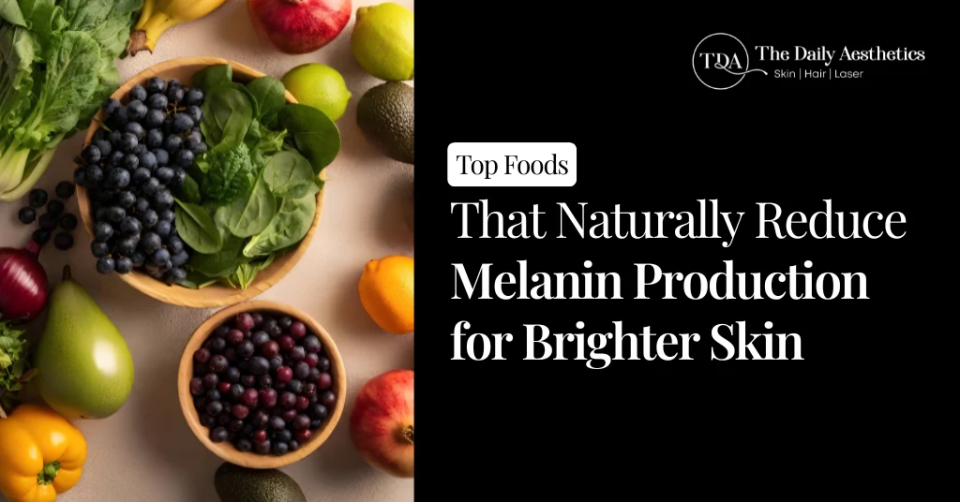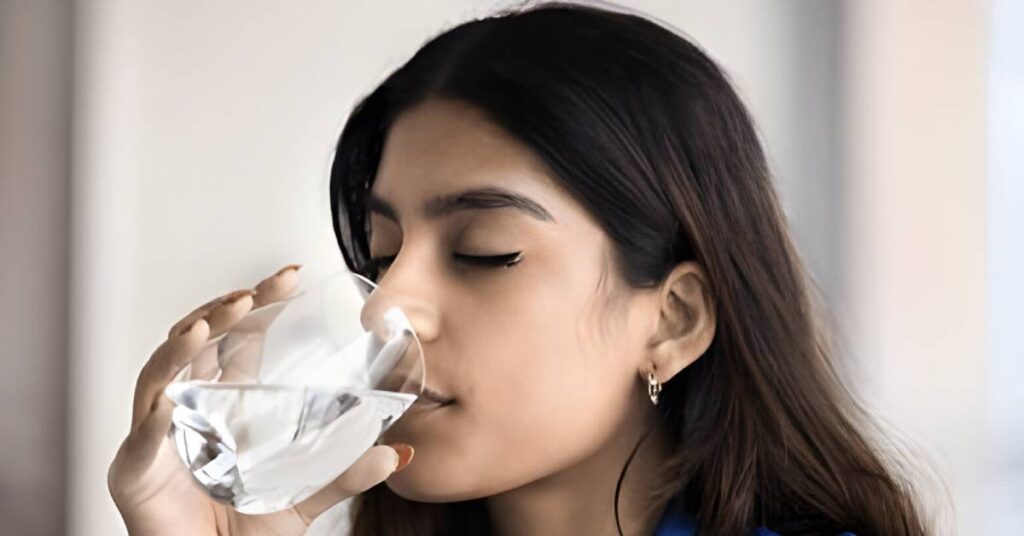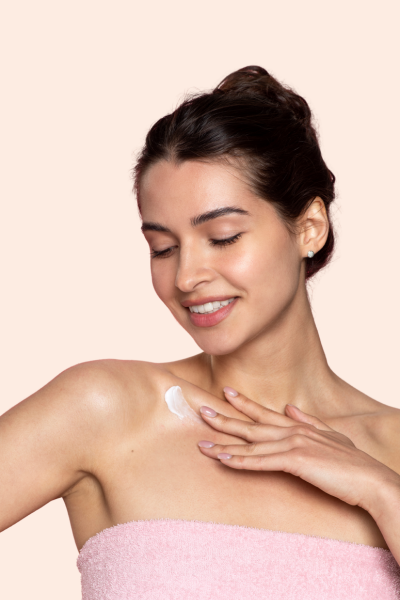If you’ve ever looked in the mirror and wished your skin appeared a little brighter or more even-toned, you’re definitely not alone.
Uneven pigmentation, tanning, and dark spots are common skin concerns that affect almost everyone at some point.
The main player behind this? Melanin—the pigment that decides your skin’s color.
Now, melanin isn’t your enemy. In fact, it plays a vital role in protecting your skin. But when your body produces too much of it, that’s when pigmentation issues show up.
While skincare products can help, what you eat daily has a surprisingly powerful effect on your skin health. Imagine your diet as your skin’s behind-the-scenes support system, quietly influencing how radiant and balanced your complexion looks.
Let’s break down how melanin works, how your diet plays a role, and which foods you should add (and avoid) if you’re aiming for naturally brighter skin.
Table of Contents
ToggleWhat is The Role of Melanin in Our Skin?
Melanin is like your body’s built-in shade.
It’s produced by specialized skin cells called melanocytes, and it’s responsible not only for your skin color but also the color of your hair and eyes.
Its most important job, however, is protection.
When you step out in the sun, your skin cells rush to produce more melanin as a defense mechanism. Without melanin, your skin would burn easily, and your risk of damage would be much higher.
The catch? Too much melanin production leads to issues like dark patches, uneven tone, and hyperpigmentation. On the other hand, too little melanin makes your skin sensitive to sunlight.
So, what you really need is a healthy balance, not an extreme reduction.
Does Diet Affect Skin Health?
You’ve probably heard the saying, “You are what you eat.”
When it comes to your skin, this couldn’t be more accurate. Skin cells constantly renew themselves, and the nutrients you provide through food fuel this renewal process.
- A diet rich in antioxidants helps your body fight oxidative stress, which is a major trigger for excess melanin production.
- Vitamin C and E support collagen, healing, and cell turnover, helping your skin look brighter and healthier.
- On the flip side, a diet heavy in processed, oily, or sugary foods can increase inflammation, making pigmentation problems worse.
So yes, your diet directly impacts how evenly your skin tone develops and how fast it recovers from damage.
Skincare products work on the outside, but food works from within.
Ideally, you want both approaches working hand in hand.
Best Foods to Reduce Melanin in Skin
Here’s a closer look at foods that can become your skin’s best friends:
- Tomatoes – Bursting with lycopene, tomatoes act as natural skin protectors. Lycopene helps your skin resist UV damage and slows down melanin production, which is why tomatoes are often called “nature’s sunscreen.”
- Citrus Fruits (Oranges, Lemons, Grapefruit) – Their Vitamin C content is unmatched. This vitamin plays a vital role in collagen production and reduces the appearance of pigmentation by interfering with melanin production.
- Carrots – Packed with beta-carotene, carrots give your skin the tools to repair itself. Over time, they help brighten dull complexions and prevent oxidative damage.
- Green Tea – Rich in catechins (a type of antioxidant), green tea has a soothing effect on skin cells and regulates melanin activity. Plus, it makes for a refreshing beverage swap from regular tea or coffee.
- Turmeric – Its active compound, curcumin, has anti-inflammatory and skin-brightening effects. In Indian households, turmeric is often used in skincare packs for this very reason.
- Papaya – This tropical fruit contains papain, a natural enzyme that gently exfoliates and reduces pigmentation. Eating it regularly supports natural skin renewal.
- Berries – Blueberries, strawberries, and blackberries are tiny but mighty. They’re loaded with antioxidants that protect against free radicals and reduce uneven pigmentation.
- Leafy Greens (Spinach, Kale, Moringa) – These greens are packed with iron, Vitamin K, and antioxidants, all of which contribute to healthy blood circulation and skin cell repair.
By adding these foods to your diet, you’re giving your skin the raw materials it needs to stay radiant and balanced.
How To Incorporate Foods that Decrease Melanin
The secret lies in small, consistent changes rather than overnight transformations.
Here are some easy, everyday tweaks:
- Start your day with warm lemon water to give your body a Vitamin C boost.
- Add papaya or berries to your breakfast cereal, smoothie, or yoghurt.
- Include tomatoes in your lunch—whether as a salad, soup, or cooked in curries.
- Switch your afternoon pick-me-up from coffee to green tea.
- Add a pinch of turmeric to milk or make a golden latte before bed.
- Snack on carrot sticks, cucumber slices, or citrus wedges instead of fried snacks.
- Rotate your dinners with leafy greens like spinach and kale at least 3–4 times a week.
These little swaps won’t just help with melanin—they’ll improve your overall health and energy levels too.
Avoid Foods That Increase Melanin
While it’s important to know what to eat, it’s equally crucial to be mindful of what to cut back on.
Certain foods can encourage inflammation or hormonal changes that stimulate melanin production:
- Excessive coffee or caffeine – Too much caffeine can stress your skin and worsen pigmentation.
- Deep-fried and oily foods – These trigger oxidative stress, making pigmentation worse.
- Processed sugary snacks – High sugar levels spike insulin, which may indirectly lead to skin issues, including uneven tone.
- Excessive red meat – While a source of protein, too much red meat can promote oxidative stress in the body.
- Overly spicy foods – These can trigger skin inflammation, often linked to dark spots and redness.
You don’t have to completely cut these out, but keeping them in check will definitely support your skin goals.
What is the Amount of Melanin Necessary in the Body?
Here’s the golden rule: melanin is not your enemy.
You shouldn’t aim to eliminate it, but rather to regulate its levels. Without enough melanin, your skin loses its natural defense against UV rays.
That’s why people with naturally lighter skin are more prone to sunburns and long-term sun damage.
The goal is to prevent excess melanin production, not wipe it out. A healthy balance keeps your skin safe while also helping it look radiant and even-toned.
That’s why, alongside diet, sun protection with sunscreen is absolutely non-negotiable.
Conclusion
Your skin is like a mirror of your daily habits, and food is one of the biggest influences.
By including antioxidant-rich fruits, vegetables, teas, and spices in your meals, and cutting back on melanin-boosting foods, you can support your skin from within. Over time, this can lead to a clearer, more radiant complexion.
Of course, diet alone isn’t always enough. If pigmentation or uneven skin tone continues to bother you, professional treatments can make a world of difference.
At The Daily Aesthetics, we specialize in safe and advanced skin solutions that are personalized for your unique needs. Whether it’s stubborn pigmentation, dark spots, or an overall skin brightening treatment, our team of expert dermatologists in Pune can guide you.
Ready to take the first step towards glowing, even-toned skin?
Contact The Daily Aesthetics today to book your consultation.
Frequently Asked Questions
1) Can specific foods guarantee a permanent reduction in melanin?
No, foods alone cannot permanently reduce melanin. They support healthy regulation, but genetics, sun exposure, and lifestyle also play a role.
2) Are there any side effects to reducing melanin through diet?
Since you’re focusing on natural, nutrient-rich foods, there are generally no side effects. The key is not to go to extremes—your body still needs melanin.
3)Can hydration affect melanin levels in the skin?
Yes, indirectly. Staying well-hydrated helps flush out toxins, improves skin repair, and supports overall health, which can reduce the appearance of pigmentation.
4) How long does it take to see results from a melanin-reducing diet?
Results vary. Some people may notice improvements in a few weeks, while for others, it could take a few months of consistent healthy eating and sun protection.
5)Are there any specific foods to avoid for those aiming to reduce melanin?
Yes. Try to avoid excess caffeine, processed sugar, fried foods, and excessive spicy or oily dishes, as these can worsen pigmentation.
6) Can melanin reduction affect skin health negatively?
Yes, if melanin levels drop too low, your skin can become highly sensitive to sun exposure. That’s why a balance is essential, along with daily sunscreen.
The Daily Aesthetics Clinic – Redefining Skin & Hair Treatments in Pune
The Daily Aesthetics Clinic is a trusted dermatology and aesthetic center in Pune, offering advanced treatments for acne, pigmentation, hair loss, laser hair removal, Hydrafacials, hair transplants, and personalized skincare.
Under the guidance of Dr. Arshi Rahul, the clinic combines medical expertise with FDA-approved technology to deliver customized treatment plans that focus on restoring skin health, enhancing radiance, and ensuring every patient feels confident and cared for.
With the trust of over 3,500 patients and a 4.9★ rating, The Daily Aesthetics Clinic is known for delivering effective, safe, and personalized care in a calm, welcoming setting.
We serve clients across Pune through our three conveniently located clinics in Baner, Kharadi, and Kalyani Nagar.
Read More
Dr. Arshi Rahul
Aesthetic Physician & Skin Specialist | 11+ years of experience
Expert Dermo-Cosmetologist & Trichologist (Gold Coast Training Academy, Australia) | Certified in Laser, Botox, Fillers & Thread Lifting | Over 10 Years of Advanced Aesthetic Expertise






